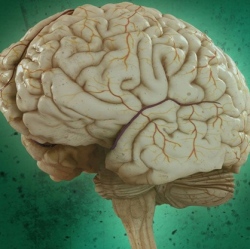
The renewal of a gene-regulating protein may be used to thwart Alzheimer’s in aging adults, according to new research out from Harvard University. The research, showed that a protein once thought to only appear in a person prenatally might in-fact resurface in old age to help prevent dementia.
The protein in question, dubbed REST, is known to be active in the developing brain of a fetus. Previous studies have concluded that the protein protects developing brains from adverse influence while a child is still in their mother’s womb. Until now, REST wasn’t thought have had a role in the adult brain, getting "switched off" after birth.
However, according to Harvard researchers, the protein, which was mildly detectable in early adulthood, suddenly became extremely active in study participants 70 to 80 years old. The protein was found present and active in the majority of participants with healthy minds between the ages of 73 and 106.
However, in the case of Alzheimer’s patients, the researcher found that the protein was almost completely absent from cells in parts of the brain associated with memory, primarily the prefrontal cortex and the hippocampus regions.
